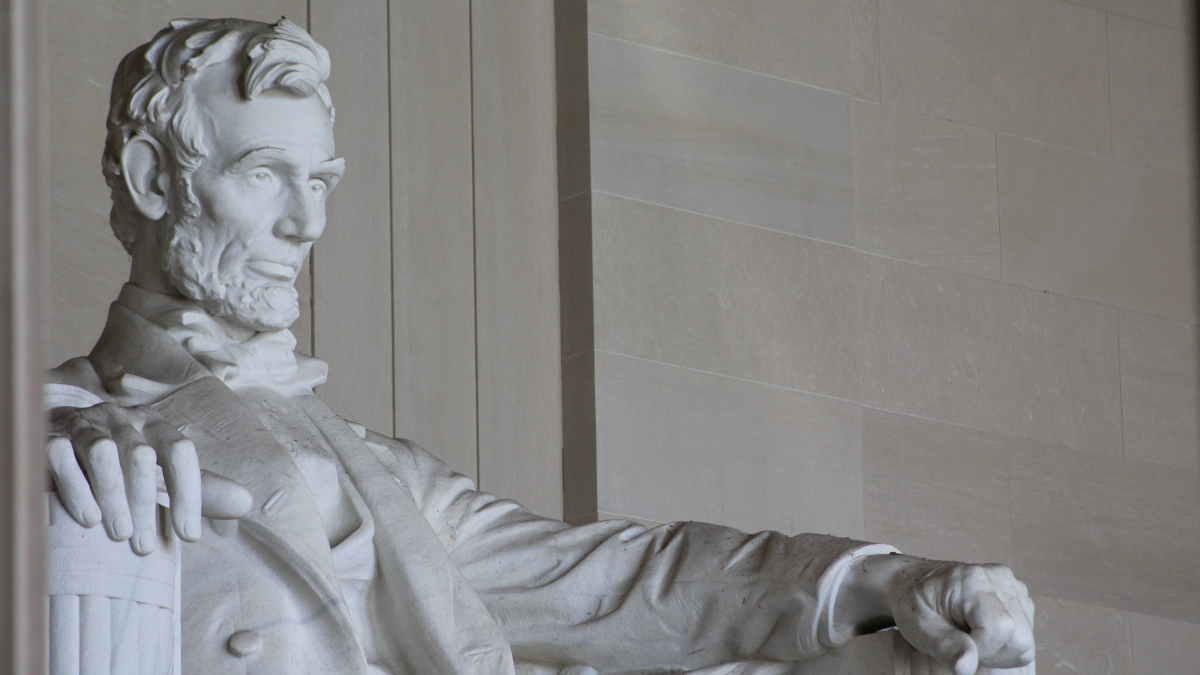

Discerning Divine Judgment: Lincoln’s Second Inaugural Address
Biblically speaking, if there is no place for divine judgment in our theology, there is something unchristian about our worldview.
03/7/23
John Stonestreet Timothy D Padgett

This week marks the anniversary of one of the most significant speeches in American history. On March 4, 1865, Abraham Lincoln took the oath of office for the second time as president of the only partially United States of America. On that late winter’s day, Honest Abe spoke hard truths to his audience, words that continue to speak to us today. That this speech and the Gettysburg Address, given just 15 months before, often both end up on lists of the “Greatest American Speeches” testifies to the rhetorical power of this semi-secular prophet.
Lincoln’s faith remains a matter of ongoing debate, but his words were unquestionably drawn from biblical imagery and principle. Though this speech was over double in length as the Gettysburg speech, it wasn’t long, clocking in at fewer than 800 words. Despite its Spartan simplicity, it still speaks volumes:
Fondly do we hope ~ fervently do we pray ~ that this mighty scourge of war may speedily pass away. Yet, if God wills that it continue until all the wealth piled by the bondsman’s two hundred and fifty years of unrequited toil shall be sunk and until every drop of blood drawn with the lash shall be paid by another drawn with the sword as was said three thousand years ago so still it must be said “the judgments of the Lord are true and righteous altogether.”
It is nearly impossible to imagine the reaction to a contemporary American politician presuming to know, much less invoke, God’s judgment. It is safe to say it would not elicit the same response as in Lincoln’s day. Yet, somehow that speech, which alternated between sorrowful self-examination and hopeful pleas for mercy to a defeated foe, still rings true. We still face moments, as humans always have, when our maudlin assumptions about human nature are shown to be naïve, when “live and let live” platitudes are no longer a viable option, and when we, like Lincoln, invoke Divine judgment.
There are even times when we, like Lincoln, realize that God’s judgment is not just due to “them” but also to “us.” These moments remind us that there is a higher order to life and that evil not only exists but also deserves judgment that will eventually come. In the last half century, over 60 million Americans have been sacrificed on the altar of absolute autonomy. In the last half decade, the surgical scarring of young bodies has become a national gnostic nightmare. “We” have done this.
As squeamish as we are about identifying which calamities, diseases, and disasters are God’s judgments for which sin, throughout the Bible, prophets, apostles, and even Christ Himself speak of judgment owed and paid out for national sins. Sometimes His judgment is portrayed as an act; other times it is portrayed as turning us over to the natural consequences of bad ideas and behavior. Either way, biblically speaking, if there is no place for divine judgment in our theology, there is something unchristian about our worldview.
Hope is not found in concluding that the dividing line of good and evil falls only within the hearts of others, nor is it found in the destruction of what God has made. After all, it was the same Christ who warned that “unless you repent, you will all likewise perish” who also promised to make all things new and to be with His people until the end of the age. It is the One whose judgment is always right who has promised a New Heaven and New Earth.
Lincoln seemed to have some sense of this, which is why he spoke hard truths about his nation’s sins while also looking in hope to a time when those sins would be removed:
With malice toward none with charity for all with firmness in the right as God gives us to see the right let us strive on to finish the work we are in to bind up the nation’s wounds, to care for him who shall have borne the battle and for his widow and his orphan ~ to do all which may achieve and cherish a just and lasting peace among ourselves and with all nations.
This Breakpoint was co-authored by Dr. Timothy D. Padgett. For more resources to live like a Christian in this cultural moment, go to colsoncenter.org.
Have a Follow-up Question?
Up
Next

Related Content

© Copyright 2020, All Rights Reserved.













